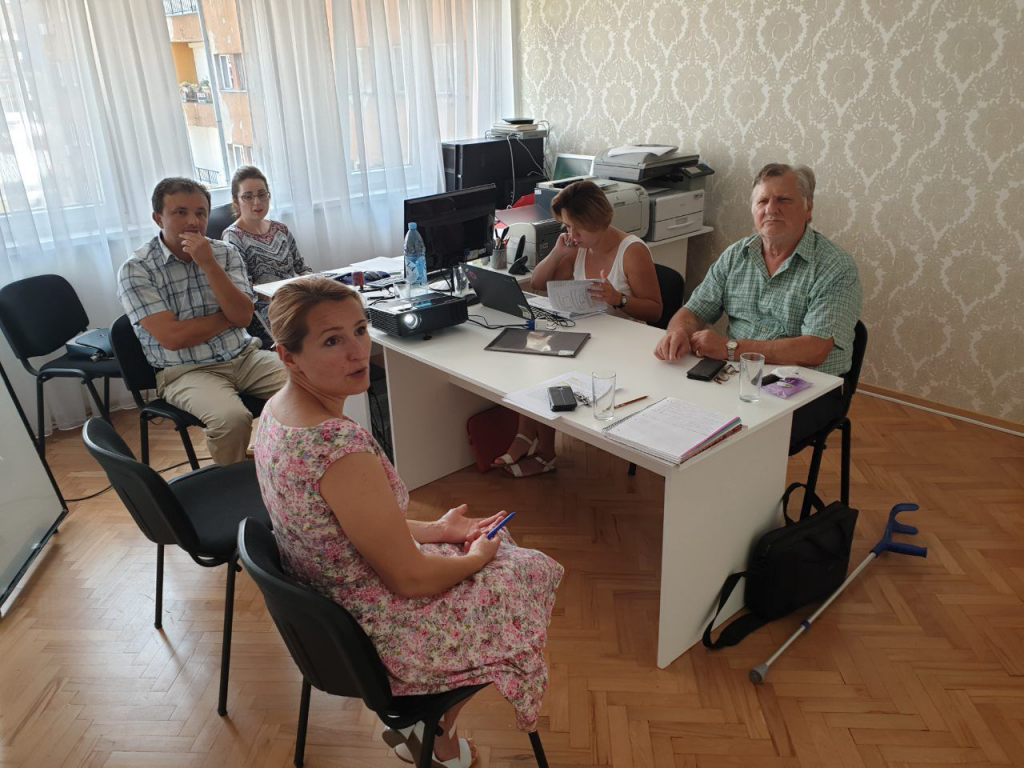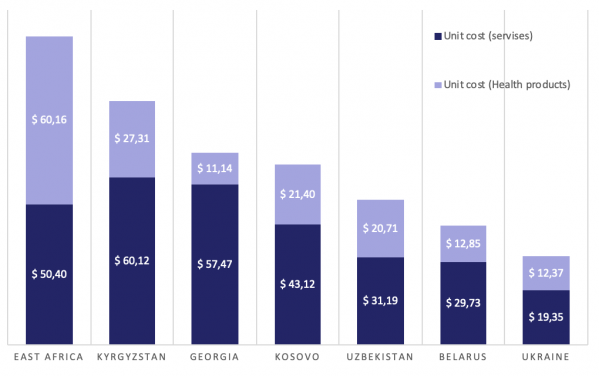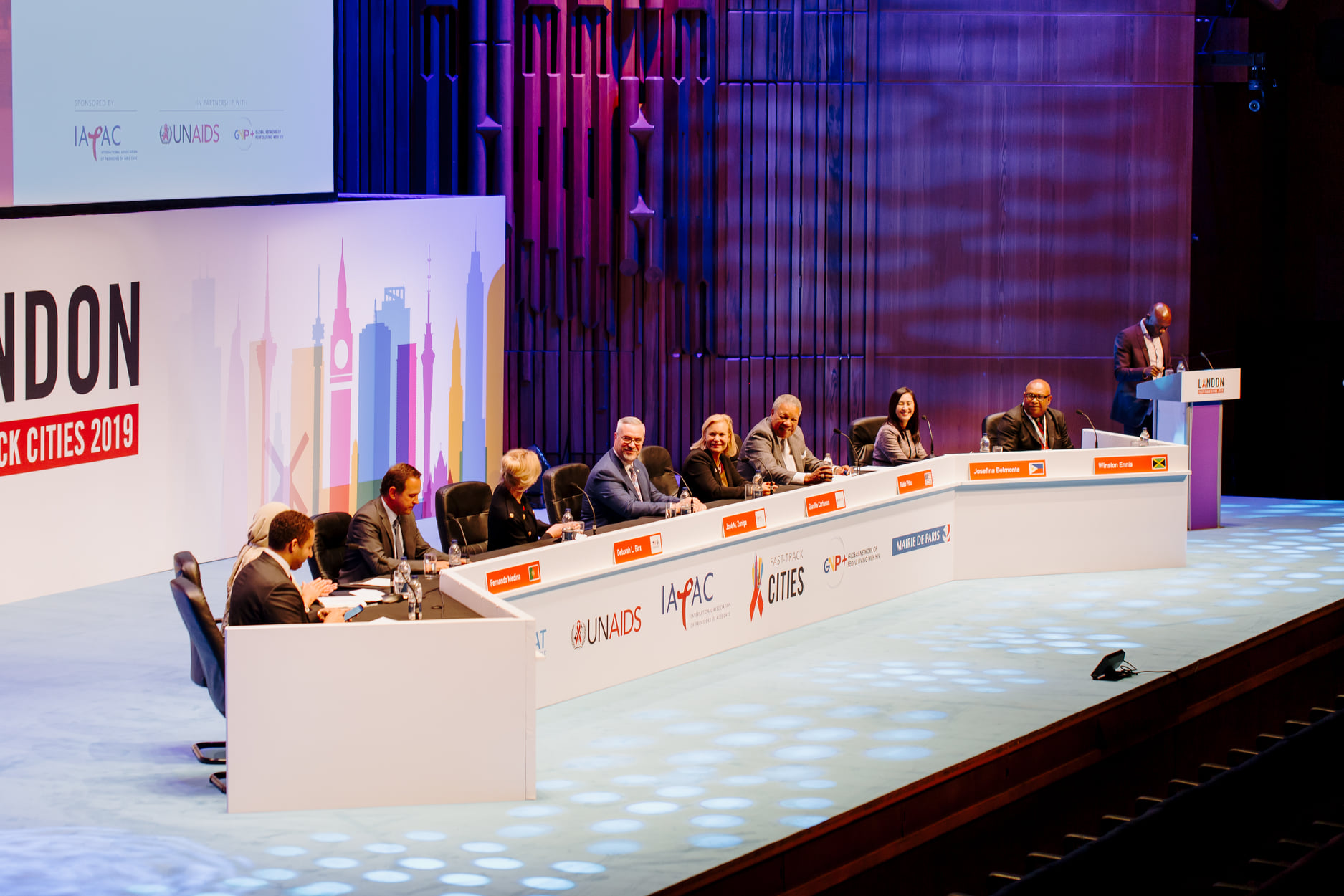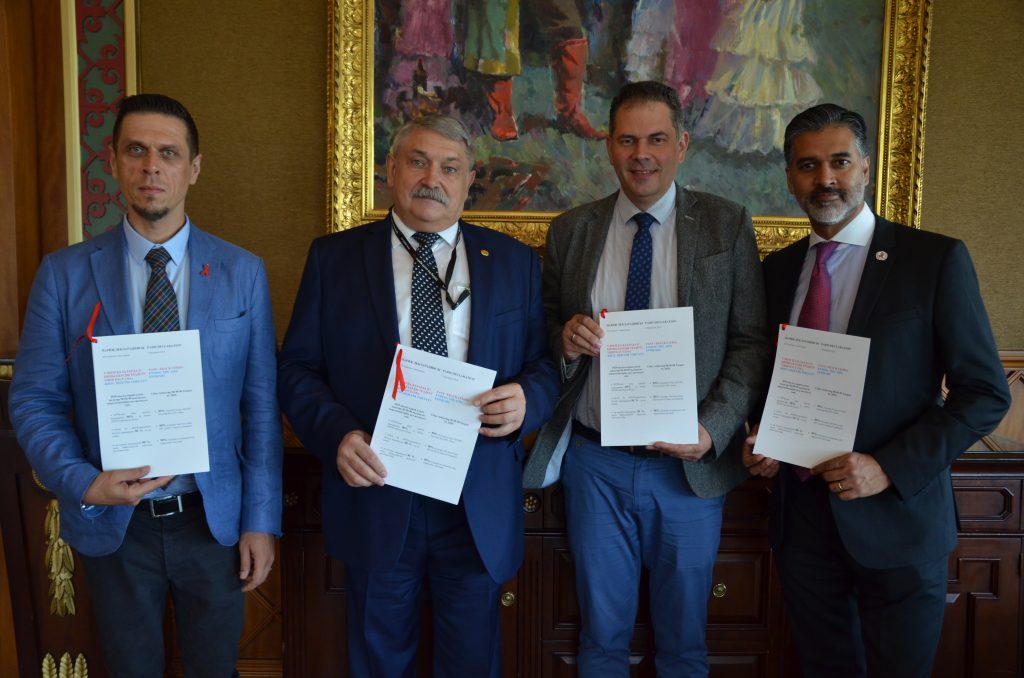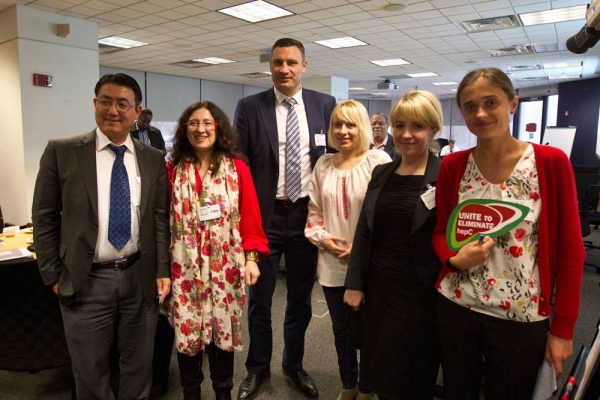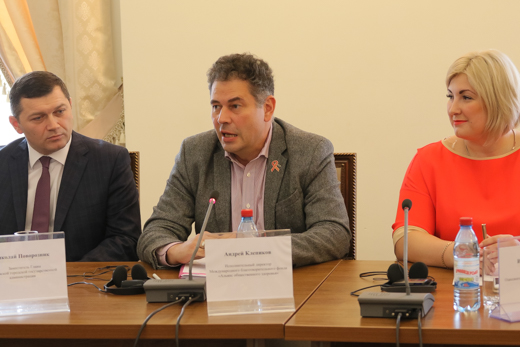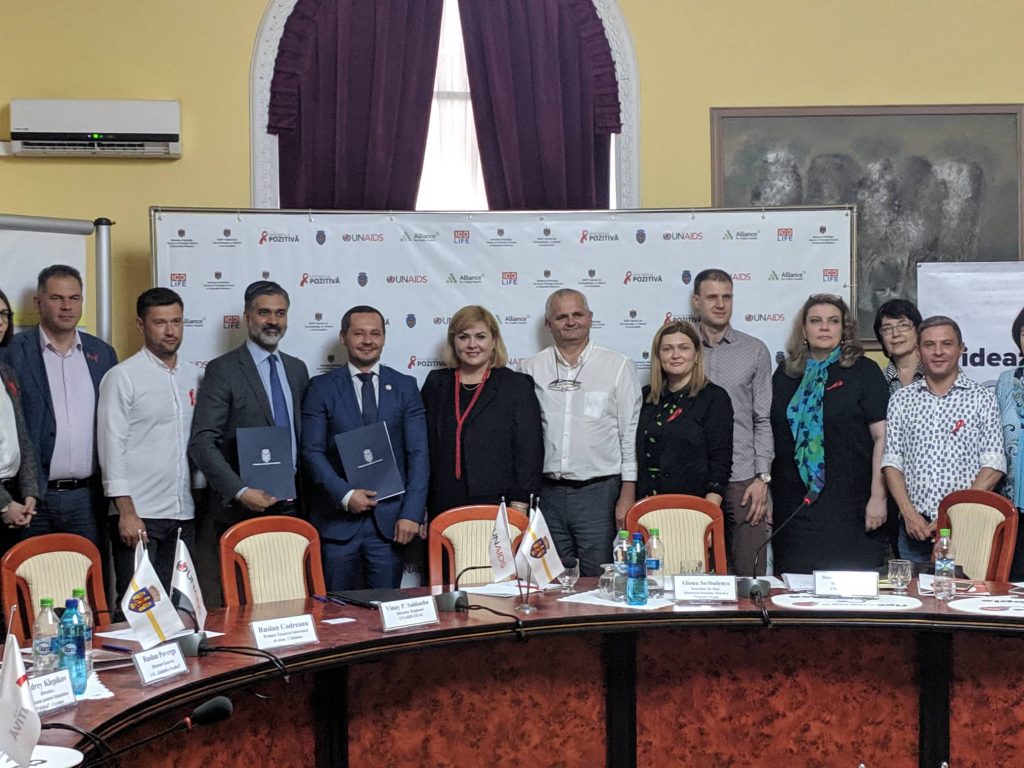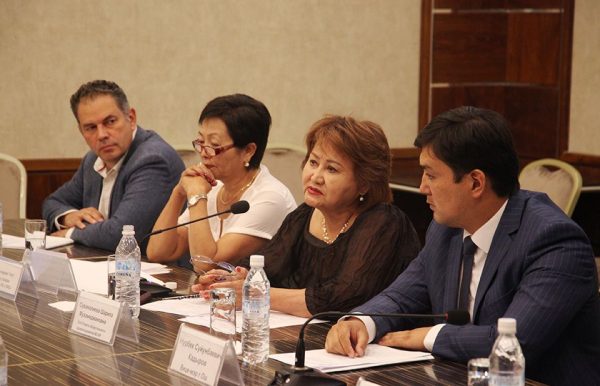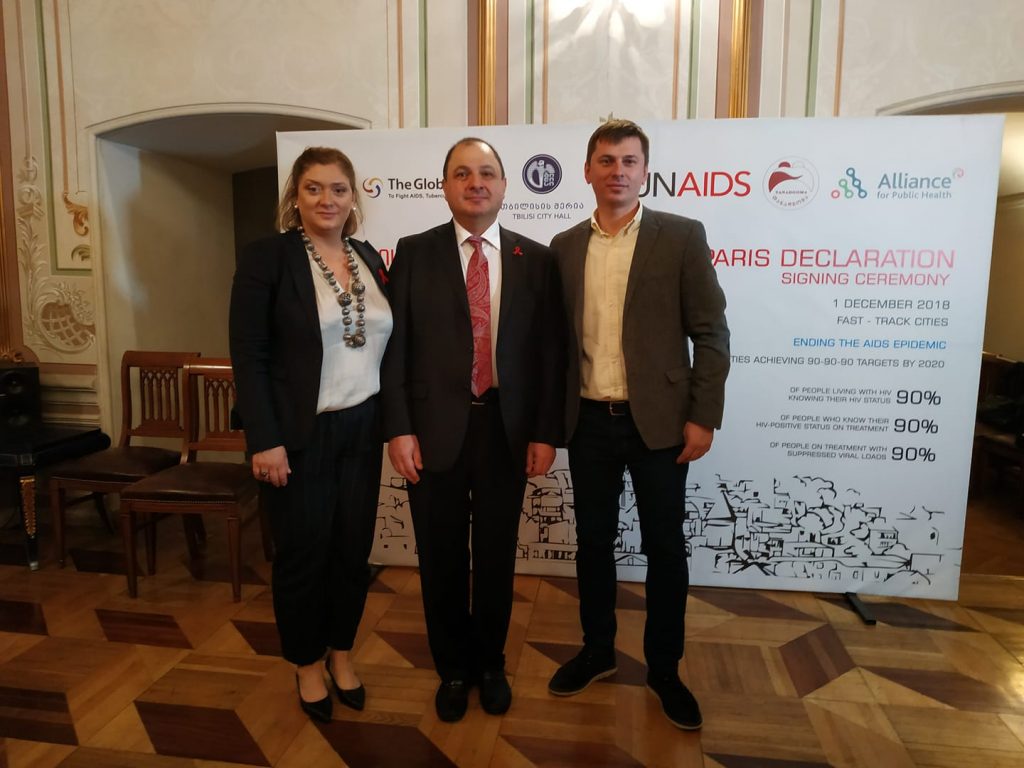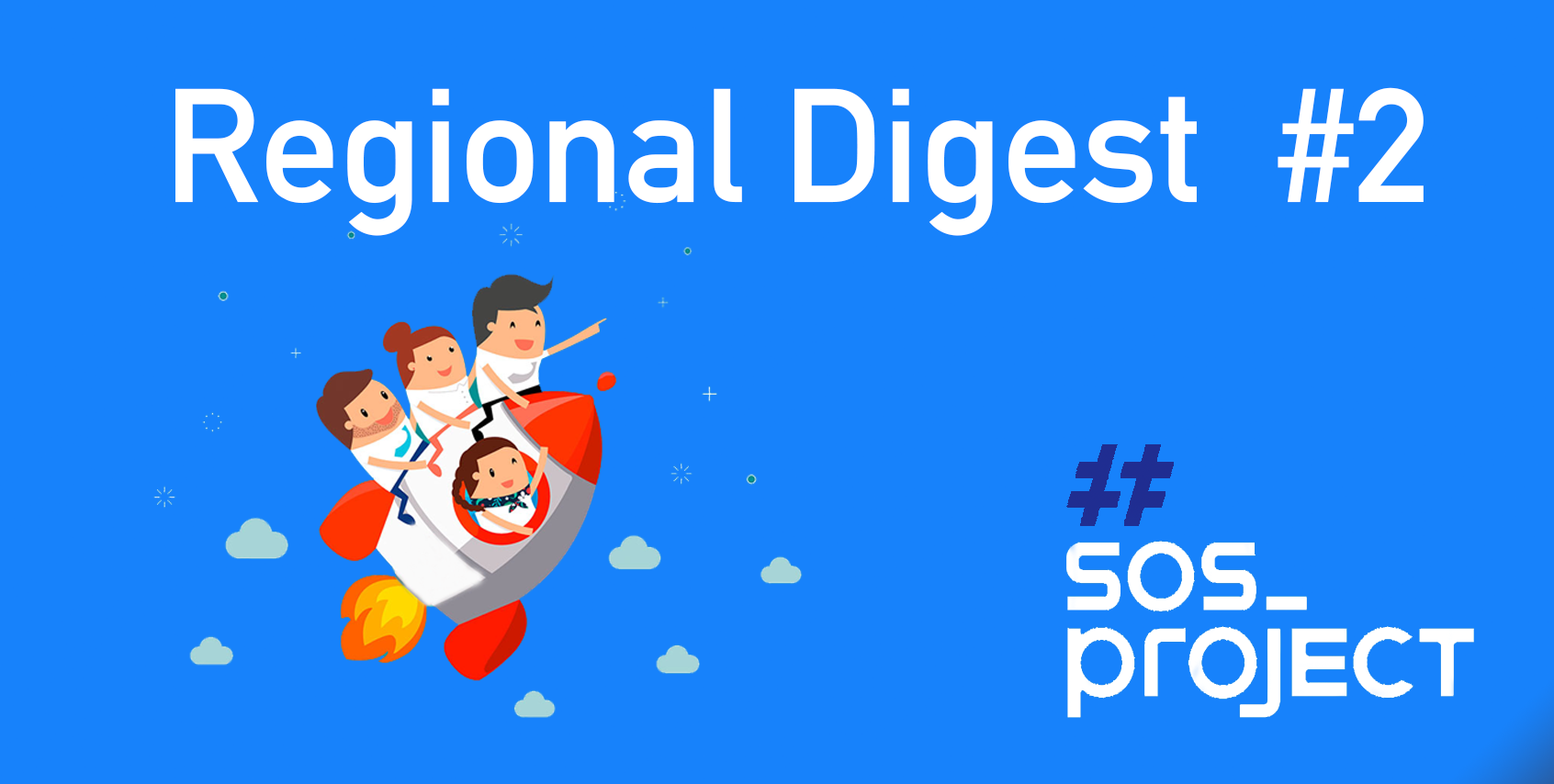In a month, on December 6, Kyiv will host municipal delegations from more than 30 cities of the world at the regional EECA City Health Leadership Forum, coordinated by the Alliance for Public Health in cooperation with the Kyiv City State Administration and UNAIDS. The forum will present and discuss the progress and most relevant interventions for the cities of the last 5 years in countering the epidemic of HIV, tuberculosis and viral hepatitis. The conference will be broadcast online on the Alliance for Public Health Facebook page.
In anticipation of the event, we studied the world experience of one of such interventions using the example of the Ukrainian city of Sumy in innovative approaches to harm reduction programs for the Eastern Europe and Central Asia countries. Thus, a harm reduction room was opened in the city with the support of municipal authorities for the first time in the EECA region. By the end of the year, it is planned to open a second one, and, moreover, this experience can be implemented in other cities of the region in the near future.
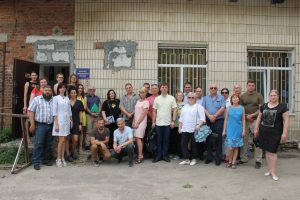 Such a unique experiment for the region attracts the attention of representatives of municipal authorities, NGOs, and other cities. So, this year, the municipal delegations of Poltava, Odessa, Kyiv, Chernigov (Ukraine), Balti, Chisinau (Moldova), Kazakhstan visited the facility to study the experience, a series of meetings were held to discuss the prospects of opening similar rooms in other cities. Therefore, we wonder, in which EECA city the next harm reduction room will be opened in cooperation between the municipal authorities of the city and NGOs?
Such a unique experiment for the region attracts the attention of representatives of municipal authorities, NGOs, and other cities. So, this year, the municipal delegations of Poltava, Odessa, Kyiv, Chernigov (Ukraine), Balti, Chisinau (Moldova), Kazakhstan visited the facility to study the experience, a series of meetings were held to discuss the prospects of opening similar rooms in other cities. Therefore, we wonder, in which EECA city the next harm reduction room will be opened in cooperation between the municipal authorities of the city and NGOs?
Background, or why we need harm reduction rooms
For the first time, a community center allowing controlled drug use was launched in the Netherlands in the early 70s. The center provided booklets with basic information about health and drug use, offered food and clothes, distributed clean syringes and also allowed to use them on the spot. The local administration and the police supported the project, but the center achieved official status only in 1996.
The first harm reduction facility for controlled drug use, officially approved by the municipal authorities and supported by health professionals, was opened in Bern in 1986 and continues to work.
Today, more than one hundred injection rooms are officially operating in the world: in Switzerland, Germany, France, Canada, Australia, Spain, Luxembourg, Norway, the Netherlands and now in Ukraine, such facilities also appeared in the USA several years ago.
Such centers address overdose cases with almost 100% efficiency, which is confirmed, for example, by the estimates. And some reports point out to the economic efficiency for national and municipal budgets, since ambulance is called much less often, and the likelihood of HIV, TB and hepatitis spread in the society is significantly reduced. Other repeatedly proven positive aspects of such an experience are: reducing crime, improving the overall health and quality of life, reducing the number of “relapses”, improving the socialization of patients (a regular job, place of residence, restored family ties).
Assessment of benefits of the harm reduction room in Sumy
Global experience shows where harm reduction rooms are introduced on the basis of state facilities in societies with a high level of discrimination and criminalization of people who use drugs, it’s difficult for them to gain the target group trust. In Sumy, this problem was successfully addressed through the involvement of social workers from a non-governmental organization.
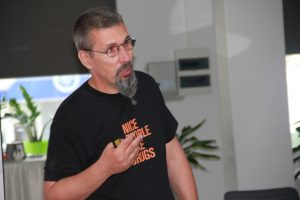 “The approaches to harm reduction in Ukraine have not changed dramatically for 20 years, so the most challenging task now is to gain trust of people who use drugs so that they are not hesitant to use in this municipal space. Everything here is built on trust, – said a public activist and the facility launch initiator, Oleksiy Zagrebelnyi. – The result of our activity at the moment is that there are more and more visitors, we began to receive feedback from them, which means that the room is in demand. It means that our efforts are not in vain. The services we provide are unique, they are in demand, and it is a success, because the social side of this project has significant benefits for the public”.
“The approaches to harm reduction in Ukraine have not changed dramatically for 20 years, so the most challenging task now is to gain trust of people who use drugs so that they are not hesitant to use in this municipal space. Everything here is built on trust, – said a public activist and the facility launch initiator, Oleksiy Zagrebelnyi. – The result of our activity at the moment is that there are more and more visitors, we began to receive feedback from them, which means that the room is in demand. It means that our efforts are not in vain. The services we provide are unique, they are in demand, and it is a success, because the social side of this project has significant benefits for the public”.
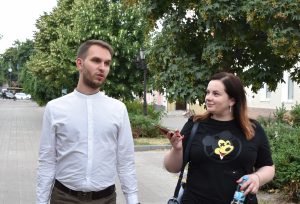 A significant example of the harm reduction room benefits is a considerable improvement in the security atmosphere in society and a decrease in the number of complaints to the Sumy authorities regarding the negative consequences of drug use, in particular: littering with used syringes and other means in the territories of hospital facilities, house entrances, playgrounds and just on the streets; use in public places, etc. According to Maksym Galitskyi, the deputy mayor of Sumy on health and safety, such appeals have become scarce once the room was opened. “Previously, there were several appeals every week, now we receive one complaint per month. This is an obvious success”, he said.
A significant example of the harm reduction room benefits is a considerable improvement in the security atmosphere in society and a decrease in the number of complaints to the Sumy authorities regarding the negative consequences of drug use, in particular: littering with used syringes and other means in the territories of hospital facilities, house entrances, playgrounds and just on the streets; use in public places, etc. According to Maksym Galitskyi, the deputy mayor of Sumy on health and safety, such appeals have become scarce once the room was opened. “Previously, there were several appeals every week, now we receive one complaint per month. This is an obvious success”, he said.
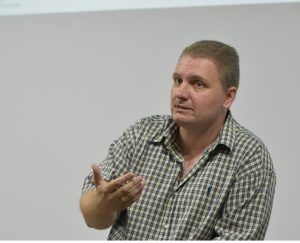 According to the chief doctors of the Sumy Regional Narcological Dispensary Taras Zlydennyi, about 50-70 people visit the harm reduction room every day, the total number of patients who are actively using substitution treatment in the city is more than 300 people, and the number of registered patients at the drug dispensary is up to 600 people. The room provides preventive counseling services to reduce the drug use harm in general and provides information on the consequences of street drugs, tests for HIV and hepatitis, counseling for relatives and members of PWUD families, exchange of syringes, as well as protection and preventive measures.
According to the chief doctors of the Sumy Regional Narcological Dispensary Taras Zlydennyi, about 50-70 people visit the harm reduction room every day, the total number of patients who are actively using substitution treatment in the city is more than 300 people, and the number of registered patients at the drug dispensary is up to 600 people. The room provides preventive counseling services to reduce the drug use harm in general and provides information on the consequences of street drugs, tests for HIV and hepatitis, counseling for relatives and members of PWUD families, exchange of syringes, as well as protection and preventive measures.
Political will and the municipal authorities’ consensus are a prerequisite of success
The Sumy approach to harm reduction is unique, because the city managed to dispel the stereotypes regarding the methods of combating drug addiction, and instead of stigmatizing and persecuting PWUD, the representatives of the city authorities, law enforcement agencies, the medical sector and NGOs united their efforts and provided the conditions for controlled drug use. Moreover, the harm reduction room is funded exclusively from the city budget, and financial assistance from international organizations, the ICF “Alliance of Public Health” and the International Renaissance Foundation, was needed only at the start of the project to repair the premises.
“There are 2 options to fight against any problem – this is either tough prosecution and looking for ways to eradicate, which are often too expensive and do not achieve effective results. The other way is the policy in which we try to reduce harm, thinking about the safety of our citizens”, said Maksim Galitskyi. – “In Ukraine, various officials, often having different mindsets, are responsible for protecting health and safety. This is a national scale problem throughout the country, since there is no single policy-maker in the field of counteracting drug trafficking, and the Ministry of Health has no influence on the SSU. In Sumy, I am an official responsible for safety and health, and this we managed to create a communication platform on which NGOs, together with authorities, reached a certain consensus on this issue”.
The importance of having political will and consensus among different branches of government is also recognized by the regional administration.
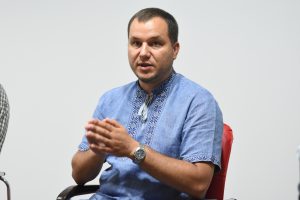 “Sumy region was lucky to have officials who are able to understand, realize, support such an initiative”, said the ex-head of the staff of the Sumy Oblast State Administration, and the current first deputy Minister of Development of Communities and Territories of Ukraine Dmytro Zhivitskyi. – We had political will, and the Head of the oblast administration supported us. Non-governmental organizations took up the function of awareness raising, expert examination and providing international experience for the administration, for the deputies, whose support we managed to gain”. According to him, the work in the harm reduction area provided an effective tool for the implementation of out-of-the-box solutions in the field of public health, which will work in the future. “Taking off in this direction, we realized that we have a well-developed mechanism for making and implementing joint out-of-the-box decisions, which was lacking before this”, he said. – “Back in 2017, we created the oblast Public Health Center, the first full-fledged regional facility. Now we have created a working group, and in mid-July we will adopt the oblast public health program, which will take into account the experience with drug users. That is, our task today is to implement a philosophy of prevention and addressing the causes rather than eliminating the consequences”.
“Sumy region was lucky to have officials who are able to understand, realize, support such an initiative”, said the ex-head of the staff of the Sumy Oblast State Administration, and the current first deputy Minister of Development of Communities and Territories of Ukraine Dmytro Zhivitskyi. – We had political will, and the Head of the oblast administration supported us. Non-governmental organizations took up the function of awareness raising, expert examination and providing international experience for the administration, for the deputies, whose support we managed to gain”. According to him, the work in the harm reduction area provided an effective tool for the implementation of out-of-the-box solutions in the field of public health, which will work in the future. “Taking off in this direction, we realized that we have a well-developed mechanism for making and implementing joint out-of-the-box decisions, which was lacking before this”, he said. – “Back in 2017, we created the oblast Public Health Center, the first full-fledged regional facility. Now we have created a working group, and in mid-July we will adopt the oblast public health program, which will take into account the experience with drug users. That is, our task today is to implement a philosophy of prevention and addressing the causes rather than eliminating the consequences”.
Where in the EECA region the next harm reduction room is about to open
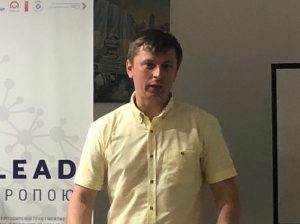 “The first harm reduction cabinet in the world was opened in the Swiss city of Bern 33 years ago. Since this time, the city has become healthier and safer, access to HIV treatment today is unconditional, and a comparison of the situation on the streets of 1986 and today clearly demonstrates the dynamics of improvement. We will talk about this in detail at the regional EECA City Health Leadership Forum on December 6, which will be held in Kyiv. We would like the cities of the EECA region to follow the path of improving the health and quality of life of citizens, using effective evidence-based methods to counter dangerous epidemics such as HIV, TB and viral hepatitis,” said Ievgen Kushnir, program manager of the Alliance for Public Health.
“The first harm reduction cabinet in the world was opened in the Swiss city of Bern 33 years ago. Since this time, the city has become healthier and safer, access to HIV treatment today is unconditional, and a comparison of the situation on the streets of 1986 and today clearly demonstrates the dynamics of improvement. We will talk about this in detail at the regional EECA City Health Leadership Forum on December 6, which will be held in Kyiv. We would like the cities of the EECA region to follow the path of improving the health and quality of life of citizens, using effective evidence-based methods to counter dangerous epidemics such as HIV, TB and viral hepatitis,” said Ievgen Kushnir, program manager of the Alliance for Public Health.
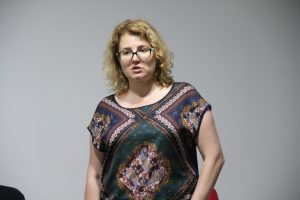 Olena Kucheruk, program manager at the International Renaissance Foundation: “As a person who has been developing harm reduction in Ukraine for 20 years, I remember how the first harm reduction services started. How innovative it was then, and how many barriers then had to be overcome. Then we could not even think that sometimes safe use rooms would be our reality. I am very happy to see that this is becoming possible today. 20 years is a long period of time, but everything is changing: people, doctors, local authorities and the police are now having a completely different understanding of the issue and expertise. It is very pleasing and inspiring. We would like to continue supporting and developing such rooms in other cities of Ukraine”.
Olena Kucheruk, program manager at the International Renaissance Foundation: “As a person who has been developing harm reduction in Ukraine for 20 years, I remember how the first harm reduction services started. How innovative it was then, and how many barriers then had to be overcome. Then we could not even think that sometimes safe use rooms would be our reality. I am very happy to see that this is becoming possible today. 20 years is a long period of time, but everything is changing: people, doctors, local authorities and the police are now having a completely different understanding of the issue and expertise. It is very pleasing and inspiring. We would like to continue supporting and developing such rooms in other cities of Ukraine”.
Note that the Sumy harm reduction room was opened at the regional drug dispensary. Local authorities and international organizations (the ICF “Alliance of Public Health” and the International Renaissance Foundation) provided the startup support for the facility. According to the results of the year, this experience, according to representatives of the city’s authorities and non-governmental organizations, has proved its efficiency and expediency.
Public activists from the Moldavian city of Balti showed interest in opening such a room in their city. Moreover, the mayor said earlier that it would be much easier to implement such programs in Balti, because for this you would only need to “copy” Bern’s experience initiated 33 years ago. Now the experience of the Ukrainian city of Sumy will become a best practice.
Moreover, the mayor of Odessa Gennadiy Trukhanov noted earlier, that “We need to change the mentality and attitude of our people. Of course, we use our experience and the changes that have occurred in the field of drug policy and the fight against HIV over the past 30 years to improve the situation in Odessa. Unfortunately, we treat people who use drugs as criminals, while we should treat them as sick and dependent people”. Inspired by Bern’s experience in drug policy as part of the #FastTrackSities study visit, Mr. Trukhanov promised to open a safe drug use room in Odessa in the EECA region.
According to Oleksiy Zagrebelnyi, repair work in the second safe use room is currently underway in Sumy, and by the end of the year it is planned to open another harm reduction room at the opposite end of the city. For this, there is already the first successful experience, and all the necessary procedures that have been developed in the course of the current safe use room equipping. However, other cities will have to make some efforts to implement such a project.
Where to start: expert advice
Experts emphasize that opening a harm reduction room in the city will involve two important aspects, the regulatory and the economic issues.
First, it is necessary to analyze the adoption of programs involving work with drug users, people living with HIV, people with hepatitis, TB and concomitant infections and calculate the costs of treating those who have been infected by chance.
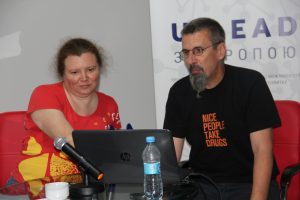 “As a rule, local program packages already exist in many cities”, said Yelena Koval, consultant for the International Renaissance Foundation on the availability of pain management medications and drug policy. – “Among local programs, we need to look for those that have a harm reduction component, analyze at which healthcare facilities such programs work, who is involved there. And then – just imagine that an infected syringe can be dropped at the building entrance, on the playground, and calculate how much post-exposure prevention will cost for a person who is accidentally exposed to the infection. How much resources will be needed in order to deliver medications, how much a treatment regimen will cost. Then it becomes clear that the cost of a harm reduction room launch is comparable to the expenses which will be incurred even in a single such case”.
“As a rule, local program packages already exist in many cities”, said Yelena Koval, consultant for the International Renaissance Foundation on the availability of pain management medications and drug policy. – “Among local programs, we need to look for those that have a harm reduction component, analyze at which healthcare facilities such programs work, who is involved there. And then – just imagine that an infected syringe can be dropped at the building entrance, on the playground, and calculate how much post-exposure prevention will cost for a person who is accidentally exposed to the infection. How much resources will be needed in order to deliver medications, how much a treatment regimen will cost. Then it becomes clear that the cost of a harm reduction room launch is comparable to the expenses which will be incurred even in a single such case”.
In order to open such a facility, it is necessary to assess the needs of the city/oblast/region, create a program that will include further steps, identify sources of funding and conclude an agreement with a health facility.
In recent years, cities have demonstrated leadership in improving people’s health and effectively combating HIV, TB, and hepatitis. And this trend is crucial at the global level, because today, 55% of the world’s population lives in cities, and it is expected that by 2050, two-thirds of the world’s population will be urban dwellers. The cities can benefit from decentralization of programs and resources, an expert community input and world experience, they only need to have political will of local authorities and the safety and health issues will be addressed. City mayors have powers to save over 2 million lives in Eastern Europe and Central Asia today.
Text: Inna Gavrylova

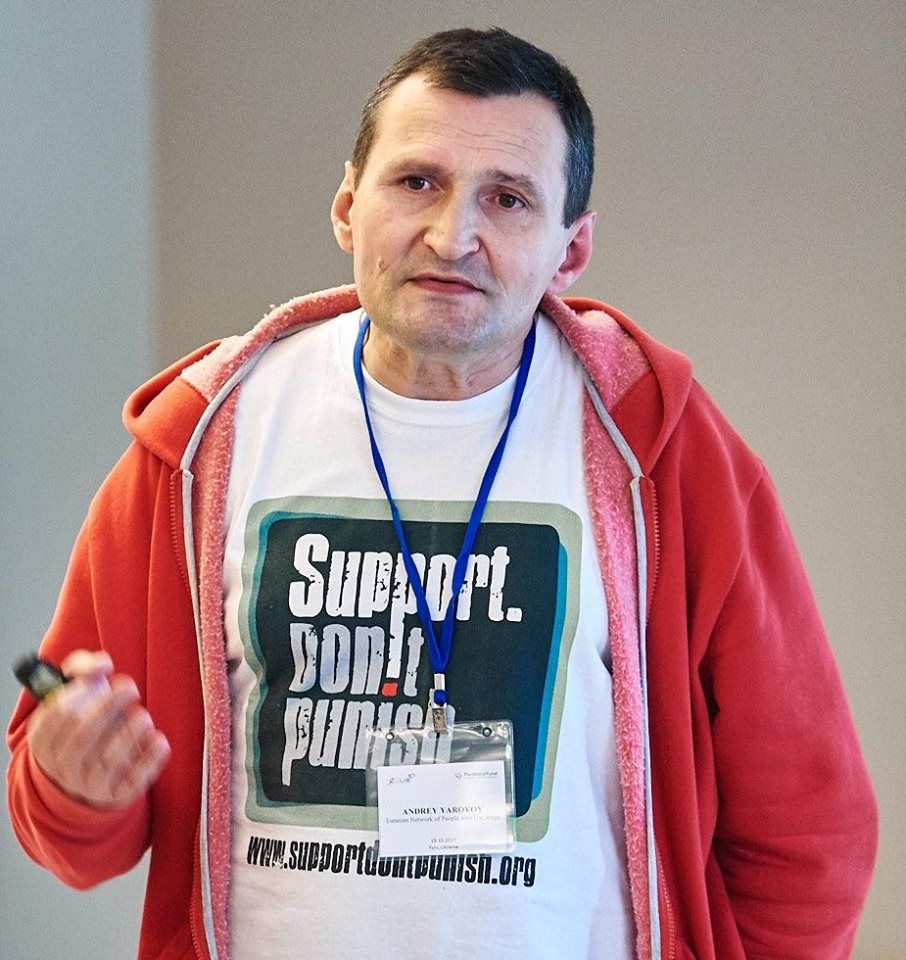

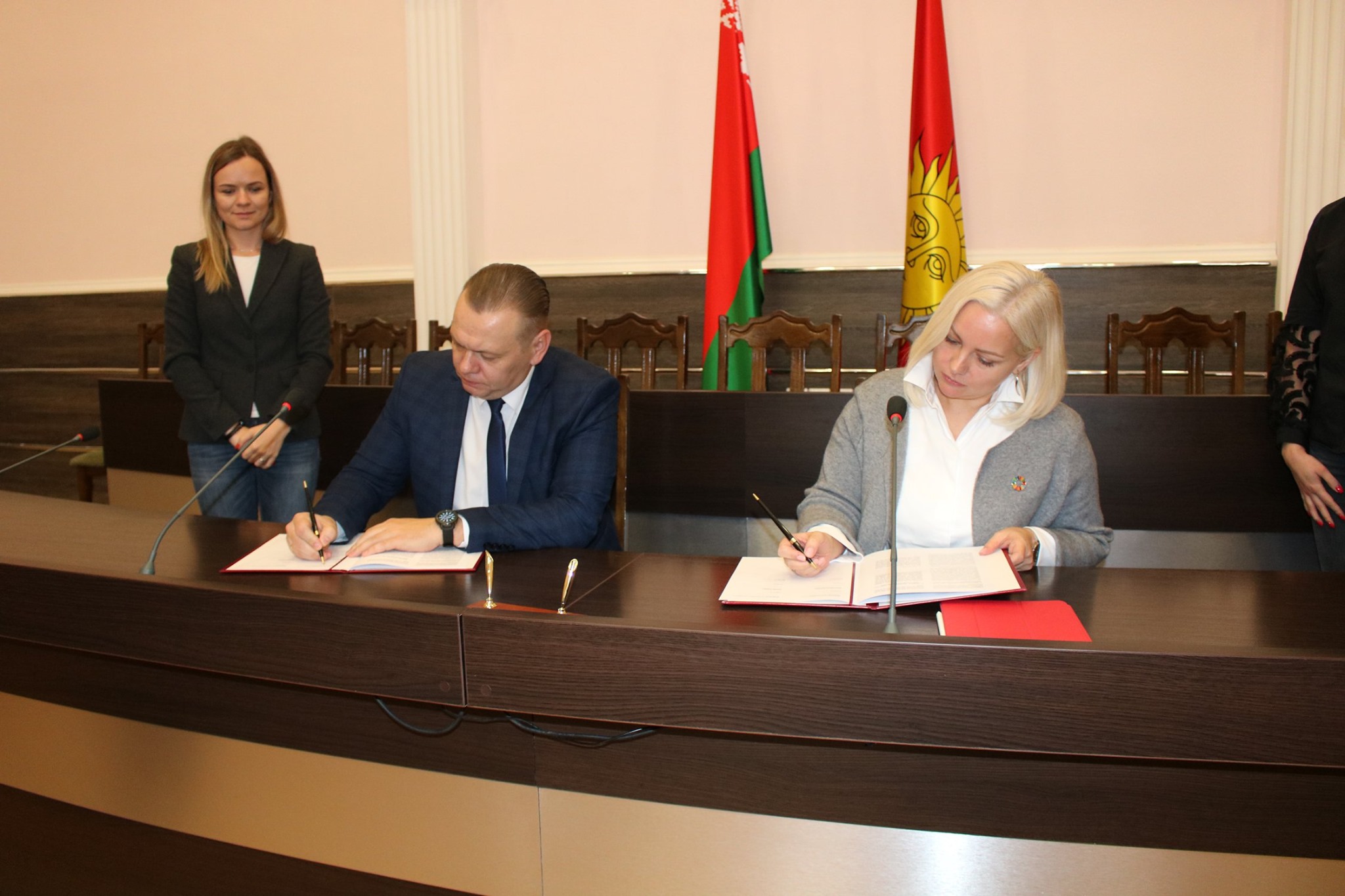

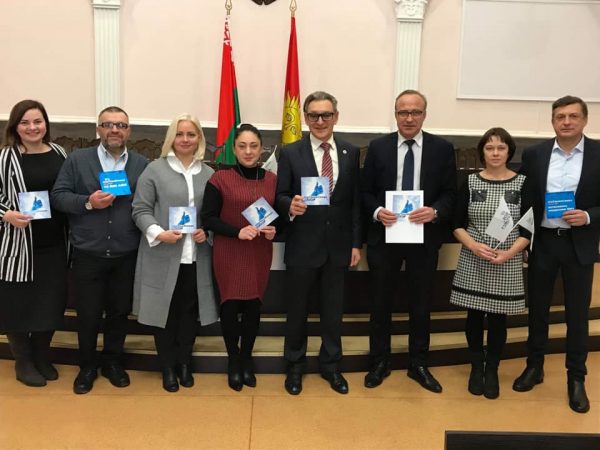
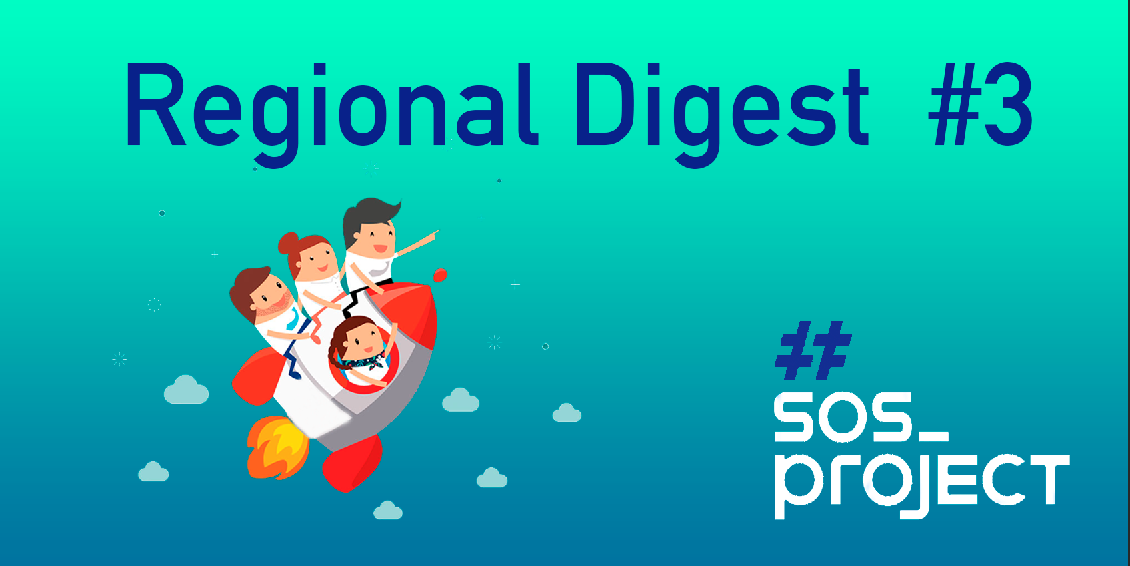
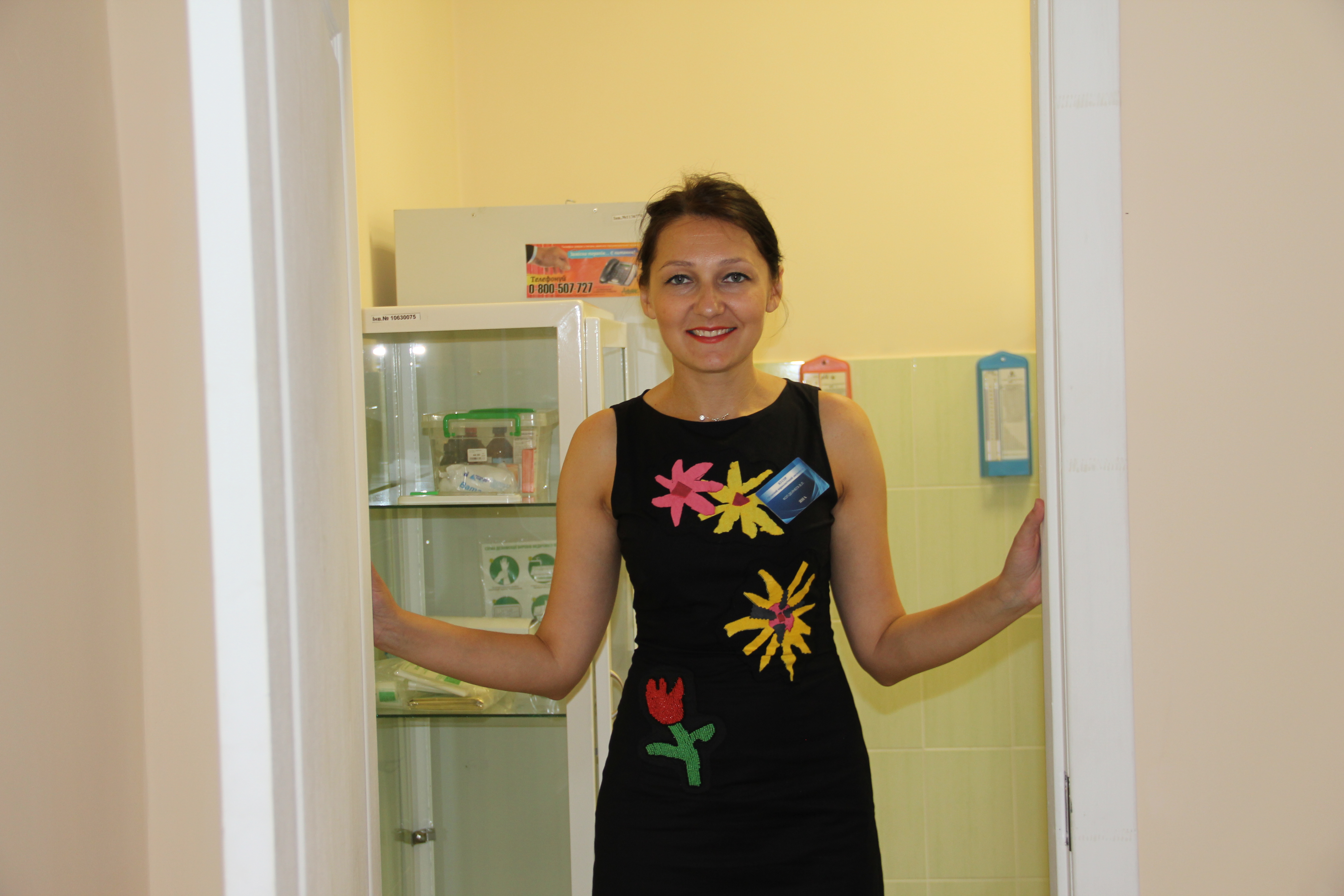
 Such a unique experiment for the region attracts the attention of representatives of municipal authorities, NGOs, and other cities. So, this year, the municipal delegations of Poltava, Odessa, Kyiv, Chernigov (Ukraine), Balti, Chisinau (Moldova), Kazakhstan visited the facility to study the experience, a series of meetings were held to discuss the prospects of opening similar rooms in other cities. Therefore, we wonder, in which EECA city the next harm reduction room will be opened in cooperation between the municipal authorities of the city and NGOs?
Such a unique experiment for the region attracts the attention of representatives of municipal authorities, NGOs, and other cities. So, this year, the municipal delegations of Poltava, Odessa, Kyiv, Chernigov (Ukraine), Balti, Chisinau (Moldova), Kazakhstan visited the facility to study the experience, a series of meetings were held to discuss the prospects of opening similar rooms in other cities. Therefore, we wonder, in which EECA city the next harm reduction room will be opened in cooperation between the municipal authorities of the city and NGOs? “The approaches to harm reduction in Ukraine have not changed dramatically for 20 years, so the most challenging task now is to gain trust of people who use drugs so that they are not hesitant to use in this municipal space. Everything here is built on trust, – said a public activist and the facility launch initiator, Oleksiy Zagrebelnyi. – The result of our activity at the moment is that there are more and more visitors, we began to receive feedback from them, which means that the room is in demand. It means that our efforts are not in vain. The services we provide are unique, they are in demand, and it is a success, because the social side of this project has significant benefits for the public”.
“The approaches to harm reduction in Ukraine have not changed dramatically for 20 years, so the most challenging task now is to gain trust of people who use drugs so that they are not hesitant to use in this municipal space. Everything here is built on trust, – said a public activist and the facility launch initiator, Oleksiy Zagrebelnyi. – The result of our activity at the moment is that there are more and more visitors, we began to receive feedback from them, which means that the room is in demand. It means that our efforts are not in vain. The services we provide are unique, they are in demand, and it is a success, because the social side of this project has significant benefits for the public”. A significant example of the harm reduction room benefits is a considerable improvement in the security atmosphere in society and a decrease in the number of complaints to the Sumy authorities regarding the negative consequences of drug use, in particular: littering with used syringes and other means in the territories of hospital facilities, house entrances, playgrounds and just on the streets; use in public places, etc. According to Maksym Galitskyi, the deputy mayor of Sumy on health and safety, such appeals have become scarce once the room was opened. “Previously, there were several appeals every week, now we receive one complaint per month. This is an obvious success”, he said.
A significant example of the harm reduction room benefits is a considerable improvement in the security atmosphere in society and a decrease in the number of complaints to the Sumy authorities regarding the negative consequences of drug use, in particular: littering with used syringes and other means in the territories of hospital facilities, house entrances, playgrounds and just on the streets; use in public places, etc. According to Maksym Galitskyi, the deputy mayor of Sumy on health and safety, such appeals have become scarce once the room was opened. “Previously, there were several appeals every week, now we receive one complaint per month. This is an obvious success”, he said. According to the chief doctors of the Sumy Regional Narcological Dispensary Taras Zlydennyi, about 50-70 people visit the harm reduction room every day, the total number of patients who are actively using substitution treatment in the city is more than 300 people, and the number of registered patients at the drug dispensary is up to 600 people. The room provides preventive counseling services to reduce the drug use harm in general and provides information on the consequences of street drugs, tests for HIV and hepatitis, counseling for relatives and members of PWUD families, exchange of syringes, as well as protection and preventive measures.
According to the chief doctors of the Sumy Regional Narcological Dispensary Taras Zlydennyi, about 50-70 people visit the harm reduction room every day, the total number of patients who are actively using substitution treatment in the city is more than 300 people, and the number of registered patients at the drug dispensary is up to 600 people. The room provides preventive counseling services to reduce the drug use harm in general and provides information on the consequences of street drugs, tests for HIV and hepatitis, counseling for relatives and members of PWUD families, exchange of syringes, as well as protection and preventive measures. “Sumy region was lucky to have officials who are able to understand, realize, support such an initiative”, said the ex-head of the staff of the Sumy Oblast State Administration, and the current first deputy Minister of Development of Communities and Territories of Ukraine Dmytro Zhivitskyi. – We had political will, and the Head of the oblast administration supported us. Non-governmental organizations took up the function of awareness raising, expert examination and providing international experience for the administration, for the deputies, whose support we managed to gain”. According to him, the work in the harm reduction area provided an effective tool for the implementation of out-of-the-box solutions in the field of public health, which will work in the future. “Taking off in this direction, we realized that we have a well-developed mechanism for making and implementing joint out-of-the-box decisions, which was lacking before this”, he said. – “Back in 2017, we created the oblast Public Health Center, the first full-fledged regional facility. Now we have created a working group, and in mid-July we will adopt the oblast public health program, which will take into account the experience with drug users. That is, our task today is to implement a philosophy of prevention and addressing the causes rather than eliminating the consequences”.
“Sumy region was lucky to have officials who are able to understand, realize, support such an initiative”, said the ex-head of the staff of the Sumy Oblast State Administration, and the current first deputy Minister of Development of Communities and Territories of Ukraine Dmytro Zhivitskyi. – We had political will, and the Head of the oblast administration supported us. Non-governmental organizations took up the function of awareness raising, expert examination and providing international experience for the administration, for the deputies, whose support we managed to gain”. According to him, the work in the harm reduction area provided an effective tool for the implementation of out-of-the-box solutions in the field of public health, which will work in the future. “Taking off in this direction, we realized that we have a well-developed mechanism for making and implementing joint out-of-the-box decisions, which was lacking before this”, he said. – “Back in 2017, we created the oblast Public Health Center, the first full-fledged regional facility. Now we have created a working group, and in mid-July we will adopt the oblast public health program, which will take into account the experience with drug users. That is, our task today is to implement a philosophy of prevention and addressing the causes rather than eliminating the consequences”. “The first harm reduction cabinet in the world was opened in the Swiss city of Bern 33 years ago. Since this time, the city has become healthier and safer, access to HIV treatment today is unconditional, and a comparison of the situation on the streets of 1986 and today clearly demonstrates the dynamics of improvement. We will talk about this in detail at the regional EECA City Health Leadership Forum on December 6, which will be held in Kyiv. We would like the cities of the EECA region to follow the path of improving the health and quality of life of citizens, using effective evidence-based methods to counter dangerous epidemics such as HIV, TB and viral hepatitis,” said Ievgen Kushnir, program manager of the Alliance for Public Health.
“The first harm reduction cabinet in the world was opened in the Swiss city of Bern 33 years ago. Since this time, the city has become healthier and safer, access to HIV treatment today is unconditional, and a comparison of the situation on the streets of 1986 and today clearly demonstrates the dynamics of improvement. We will talk about this in detail at the regional EECA City Health Leadership Forum on December 6, which will be held in Kyiv. We would like the cities of the EECA region to follow the path of improving the health and quality of life of citizens, using effective evidence-based methods to counter dangerous epidemics such as HIV, TB and viral hepatitis,” said Ievgen Kushnir, program manager of the Alliance for Public Health. Olena Kucheruk, program manager at the International Renaissance Foundation: “As a person who has been developing harm reduction in Ukraine for 20 years, I remember how the first harm reduction services started. How innovative it was then, and how many barriers then had to be overcome. Then we could not even think that sometimes safe use rooms would be our reality. I am very happy to see that this is becoming possible today. 20 years is a long period of time, but everything is changing: people, doctors, local authorities and the police are now having a completely different understanding of the issue and expertise. It is very pleasing and inspiring. We would like to continue supporting and developing such rooms in other cities of Ukraine”.
Olena Kucheruk, program manager at the International Renaissance Foundation: “As a person who has been developing harm reduction in Ukraine for 20 years, I remember how the first harm reduction services started. How innovative it was then, and how many barriers then had to be overcome. Then we could not even think that sometimes safe use rooms would be our reality. I am very happy to see that this is becoming possible today. 20 years is a long period of time, but everything is changing: people, doctors, local authorities and the police are now having a completely different understanding of the issue and expertise. It is very pleasing and inspiring. We would like to continue supporting and developing such rooms in other cities of Ukraine”. “As a rule, local program packages already exist in many cities”, said Yelena Koval, consultant for the International Renaissance Foundation on the availability of pain management medications and drug policy. – “Among local programs, we need to look for those that have a harm reduction component, analyze at which healthcare facilities such programs work, who is involved there. And then – just imagine that an infected syringe can be dropped at the building entrance, on the playground, and calculate how much post-exposure prevention will cost for a person who is accidentally exposed to the infection. How much resources will be needed in order to deliver medications, how much a treatment regimen will cost. Then it becomes clear that the cost of a harm reduction room launch is comparable to the expenses which will be incurred even in a single such case”.
“As a rule, local program packages already exist in many cities”, said Yelena Koval, consultant for the International Renaissance Foundation on the availability of pain management medications and drug policy. – “Among local programs, we need to look for those that have a harm reduction component, analyze at which healthcare facilities such programs work, who is involved there. And then – just imagine that an infected syringe can be dropped at the building entrance, on the playground, and calculate how much post-exposure prevention will cost for a person who is accidentally exposed to the infection. How much resources will be needed in order to deliver medications, how much a treatment regimen will cost. Then it becomes clear that the cost of a harm reduction room launch is comparable to the expenses which will be incurred even in a single such case”.
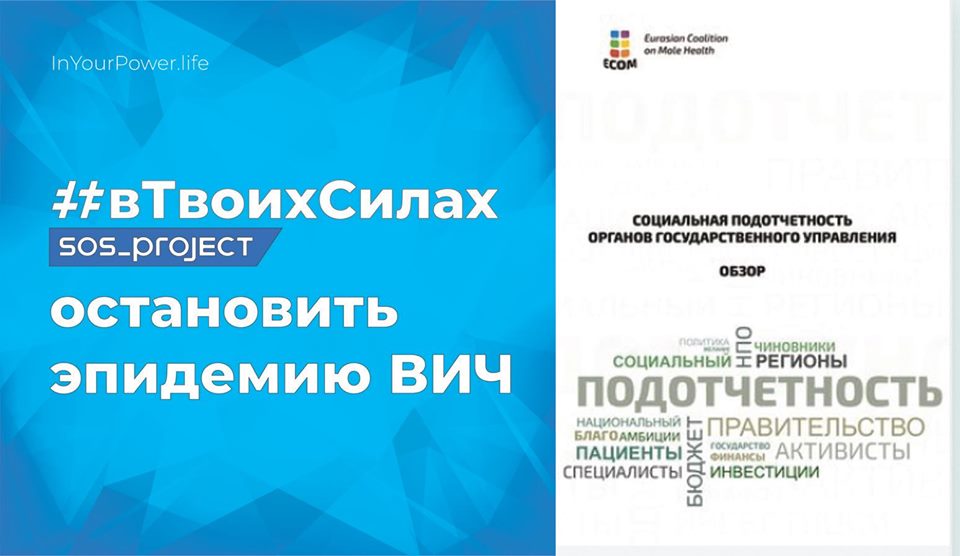
 “We faced the task of creating a motivating public background for a more effective dialogue between civil society and government bodies, to inspire and encourage officials to make appropriate decisions in favor of ensuring the sustainability of HIV services and saving lives of more than 2 million people living with HIV in the region. In the process of the campaign development, we studied the trends, lessons and impact of information campaigns in the region over the past 5 years. We had everything in these six months: heated discussions in the team, we conducted in-depth interviews, discussions with officials, communications with experts and political scientists, representatives of communities from different countries, and in this campaign, we formed the most simple and understandable communication “it’s in your power to stop the HIV epidemic. We will work to ensure better visibility of successful and efficient work of such cooperation in the EECA countries and the Balkan region, ” said Inna Gavrylova.
“We faced the task of creating a motivating public background for a more effective dialogue between civil society and government bodies, to inspire and encourage officials to make appropriate decisions in favor of ensuring the sustainability of HIV services and saving lives of more than 2 million people living with HIV in the region. In the process of the campaign development, we studied the trends, lessons and impact of information campaigns in the region over the past 5 years. We had everything in these six months: heated discussions in the team, we conducted in-depth interviews, discussions with officials, communications with experts and political scientists, representatives of communities from different countries, and in this campaign, we formed the most simple and understandable communication “it’s in your power to stop the HIV epidemic. We will work to ensure better visibility of successful and efficient work of such cooperation in the EECA countries and the Balkan region, ” said Inna Gavrylova.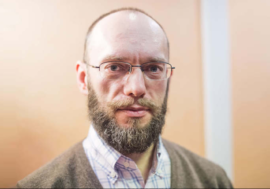 – How to work with officials? What is the internal motivation of government officials?
– How to work with officials? What is the internal motivation of government officials? “Social accountability is a mechanism of interaction between government bodies and civil society, it is a movement towards each other, which helps the state system to respond in a timely and efficient manner to both problems and challenges, as well as emerging opportunities,” said Natalia Podogova. – “Studying the motivation of government officials and politicians to be open and interact with civil society can help attract them to the category of partners and allies, and existing partnerships can be developed and strengthened. You can read about all this in the review prepared by ECOM, and in the preparation of which I was able to participate”.
“Social accountability is a mechanism of interaction between government bodies and civil society, it is a movement towards each other, which helps the state system to respond in a timely and efficient manner to both problems and challenges, as well as emerging opportunities,” said Natalia Podogova. – “Studying the motivation of government officials and politicians to be open and interact with civil society can help attract them to the category of partners and allies, and existing partnerships can be developed and strengthened. You can read about all this in the review prepared by ECOM, and in the preparation of which I was able to participate”.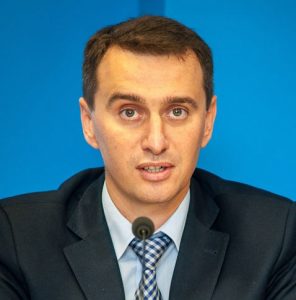 “How to activate the state to effectively implement priority measures to overcome the HIV / AIDS epidemic is a very complex issue. It is especially difficult in the context of parallel reforms, when there is a political struggle for limited resources. And in these conditions, we need not only to ensure a gradual transition from donor funds, mainly from the Global Fund, to financing from state and local budgets, but also to prevent the cessation of such activities or the deterioration in the quality of their implementation,” – noted Victor Lyashko.
“How to activate the state to effectively implement priority measures to overcome the HIV / AIDS epidemic is a very complex issue. It is especially difficult in the context of parallel reforms, when there is a political struggle for limited resources. And in these conditions, we need not only to ensure a gradual transition from donor funds, mainly from the Global Fund, to financing from state and local budgets, but also to prevent the cessation of such activities or the deterioration in the quality of their implementation,” – noted Victor Lyashko.
